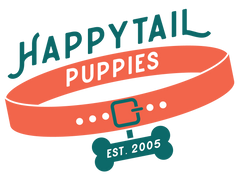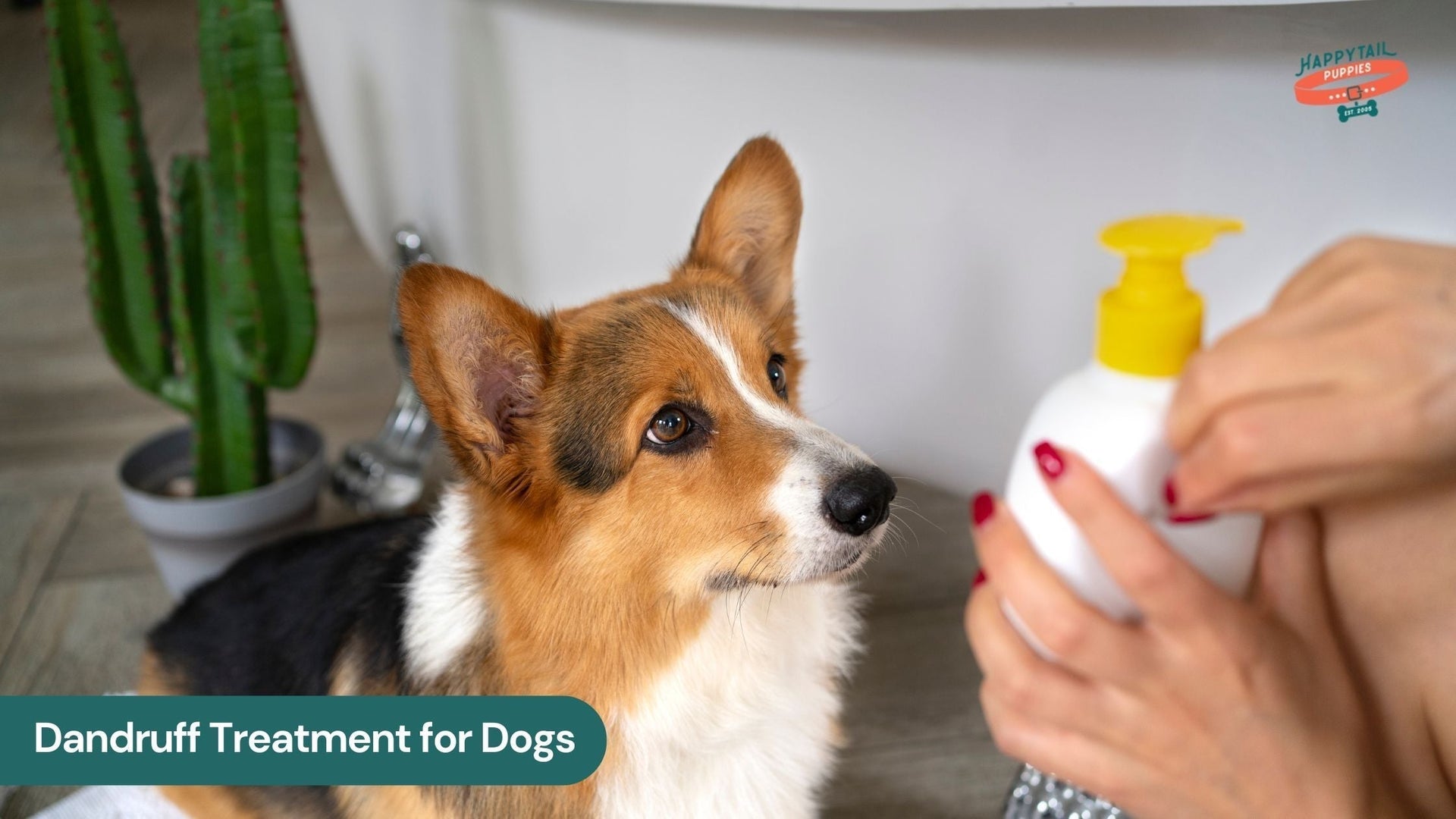Dandruff Treatment for Dogs: What Works and What Doesn’t
Dog dandruff can be a flaky, itchy problem for your furry friend. Learn common causes, symptoms to spot, and effective treatments including diet, grooming, and vet-recommended solutions to keep your pup's skin healthy and happy.
Dandruff is an issue that none of us likes to deal with. These embarrassing white flakes that often start accumulating on your shoulders when wearing a dark shirt, often accompanied by an itchy scalp, are something that you need to resolve sooner.
Similarly, the same is true for our furry companions, as they can also suffer from dandruff. Often, it resembles human dandruff, considering the various causes, symptoms, and treatment approaches. However, this does not mean that you have to use your dandruff shampoo on your furry companion. A good grooming and bathing routine with a dog-friendly shampoo, as well as a vet treatment, can help in dealing with your pup's dandruff.
Studies from the American Veterinary Medical Association have shown that approximately 50% of dogs experience some form of skin disease during their lifetime. It often highlights the true essence of prioritizing their skin's health sooner. Dog dandruff is a condition that the pet parents should consider seriously. In today's post, we will highlight the symptoms to look out for, explore different treatment methods, provide prevention tips, and discuss effective dandruff treatments for dogs.
Why Does My Dog Have Dandruff?
Dandruff is a common skin condition associated with the sebaceous glands, which produce sebum, a type of skin oil. They bring about two types of dandruff. Seborrhea is the condition that results from the excessive production of oil in these glands. This leaves it out of balance and is similar to what people think of dandruff, which are small, white pieces of skin.
When the oils produced by the sebaceous glands are in insufficient amounts, a different kind of response is triggered. The skin of your dog may become greasy and develop an unpleasant odor. What causes dry skin in dogs? Chances are that you may be curious to know why your dog has dandruff- if this is so, then here are some helpful dog dandruff remedy tips and common causes:
Poor Diet
The nutritional value is crucial to your dog's well-being. The diet that people consume influences numerous processes within the organism, including energy levels, the strength of the immune system, and skin health.
Vitamins (especially vitamin A), water, and fatty acids are essential for maintaining a healthy coat. The lack or absence of these components in your pet's diet may cause dandruff. In formal research, it was found that a deficiency in Omega-3 fatty acids was associated with dry skin and flakiness in dogs.
Pro tip: To develop healthy skin, feed your dog complete and balanced dog food.
Too Much or No Grooming
The grooming of your dogs is important, as it helps maintain their overall health and even improves their quality of life. One should not neglect searching for the proper rhythm of grooming, though. Excessive grooming can cause dry skin in your pet. Conversely, when you do not brush or bathe them frequently, the coat will become oily.
It surprises people that a breed like the Mini Goldendoodle may require more grooming, given its generally curly and dense coat. Each dog has different needs, although grooming occasionally can be a good way to prevent dandruff.
Dry Air
Your dog may develop dry skin due to a lack of moisture in the air. Be on the lookout for this when you live in an arid climate. You may also notice increased dandruff in winter, particularly because it is drier than other seasons of the year. A study conducted by the American Society for Microbiology examines the role of low-humidity environments in exacerbating skin barrier dysfunction in animals, resulting in increased skin flaking and irritation.
Genetics
Typically, dogs' bodies renew their skin cells at regular intervals. The cycle of cell turnover does not work in some breeds. These canines experience renewal relatively quickly, which can lead to dandruff. Breeds such as Cavapoo can be genetically predisposed to skin problems, and it is essential to have regular check-ups.
Allergies
Dandruff may also be caused by environmental or seasonal allergies in dogs. If this is the case, please consult your veterinarian for further guidance. They will be able to diagnose the cause of the vulnerable state of dry skin of your dog and prescribe the treatment to them in the form of canine dandruff remedies.
Health Conditions
The dog's dandruff in other situations can be symptomatic of an underlying disease. Hypothyroidism, autoimmune conditions, and diabetes mellitus can cause it. Another factor is known to be Cushing's disease. Discuss with your veterinarian if you are concerned.
Infections
The skin of your dog appears irritated; you can use a couple of home remedies for dog dandruff and itching before it becomes necessary to visit a vet. Other unusual symptoms, such as flaking or oily skin, may indicate that your pet requires medical attention.
What Are the Signs of Dandruff on Your Dog?
If you are checking out the signs to watch out for dry skin on dogs, since you would suspect that your pup is having dandruff and here are a few common symptoms:
- White flakes on your dog’s fur
- Itchy skin
- Licking, biting, or scratching
- Irritated, red patches of skin
- Alopecia, aka hair loss
- Oily skin
- An unpleasant odor
- Scabs
It is essential to understand that not all dandruff appears the same. Symptoms vary depending on whether your dog has dry seborrhea or oily seborrhea. Luckily, these signs of dandruff are easy to identify. If you find one, ensure that your canine companions have any other strange symptoms.
Treatment and Management of Dandruff in Dogs
It is essential to address your dog's dandruff problem to ensure their comfort and maintain their good health. Fortunately, dandruff in dogs can be effectively treated and managed.
Dietary Changes to Improve Your Dog’s Skin Health
Fatty acids and a healthy diet are a natural remedy for dandruff in dogs, as they help with skin hydration and strengthen the skin. In order to overcome the problem of dandruff, make sure that your canine companion is on a good and well-balanced diet. Choose veterinary-grade dog food that contains a lot of fundamental fatty acids, such as Omega-3 and Omega-6, and essential amino acids that will assist in keeping a healthy skin barrier.
They should add ingredients to their food, such as fish oil, flaxseed oil, or even a touch of coconut oil, to ensure that the skin absorbs their inner nutrition. Such ingredients contain natural oils that can help prevent dryness on the skin, as well as itching, which are common signs of dog dandruff. It is a cure for dog dandruff for breeds with sensitive skin and thick fur, such as the Toy Poodle.
Proper Grooming Techniques to Prevent Dandruff in Dogs
Proper grooming is essential for dogs with dandruff. Frequent brushing not only helps one maintain beauty, but it also prevents dry skin and flakes. It is one basic practice that can form part of the best dandruff solutions for canines that pet parents can observe. It also promotes circulation in the skin, which helps maintain its health.
Trimming dog's nails correctly will not only cause less stress during grooming but will also prevent the skin of your pet from becoming irritated. When washing your pet, use warm water and a gentle, moisturizing dog shampoo. Hot water should also be avoided because it can even make their skin drier. It is also important to rinse properly so that the remnants of the shampoo can be washed off, as they can irritate your skin.
Use of Medicated Shampoos for Dogs
When your dog's dandruff is stubborn, apply a medicated shampoo specifically designed for dogs with dandruff. Search for shampoos that contain ingredients such as salicylic acid, coal tar, or ketoconazole. These products are also able to slough off the dead skin cells, relieve inflammation, and calm the itching. Bathing frequency matters, too. How Often Should You Bathe Your Puppy? It is essential because excessive bathing can cause dry skin and prompt the emergence of dandruff.
Before applying any medicated shampoo, especially if you're unsure, consult your veterinarian to determine the most suitable product for your dog. They are able to prescribe effective shampoos and provide patients with instructions on how to use them effectively.
Medications for Underlying Dog Skin Conditions
Dandruff is also a sign of another disorder in some cases, such as skin infections or allergies. When this is the case, your vet can prescribe medications or treatments depending on the primary cause of the dandruff.
An example is when the problem causing dandruff is due to allergies; in this case, your vet might prescribe the use of antihistamines or an allergy shot. When there is a bacterial or fungal infection, they can prescribe antifungal or antibiotic medications.
Home Remedies
Although professional interventions are paramount when it comes to chronic or severe infections of dandruff in dogs, you can also turn to some of the home remedies to offer a remedy to your pet.
Natural Remedies for Dog Dandruff
- Coconut Oil: Use some coconut oil on the skin and coat of the dog. It can help moisturise dry skin and reduce flakiness. Refrain from giving your dog excessive amounts of coconut oil, as it can be high in calories.
- Oatmeal Bath: An oatmeal bath can soothe itchy skin. Put plain, uncooked oatmeal through the grinder to create a fine powder, then stir it into warm water to form a paste. Rub it gently on your dog's skin, leave it on for a few minutes, and then wash thoroughly.
- Aloe Vera: Aloe vera gel is also soothing to irritated skin and can serve as a reliever of itching. Ensure it's pure aloe vera without added chemicals.
How to Prevent Your Dog From Getting Dandruff?
To ensure the well-being of dogs, it is essential to prevent dandruff. Researchers estimate that exciting dog grooming trends will emerge in 2025, focusing on holistic care for the coats and skin of all breeds. Fortunately, there are some things you can do to keep your furry pet flake-free:
Proper Nutrition
Diet is also important for the health of your dog's skin, especially when it comes to a well-balanced diet. Ensure that their food contains a balanced combination of essential nutrients, including Omega-3 and Omega-6 fatty acids, which also help combat dry skin and dandruff.
Regular Grooming
Grooming is not only a way to make your dog look fabulous, but also a means of ensuring your dog's healthy skin. Through regular dog grooming, brushing the coat helps remove dead skin cells, redistributes natural oils, and stimulates blood flow to the skin. To support this idea, consider using a dog-specific brush that is suitable for your pup's specific coat type.
Bathing with the Right Shampoo
When bathing your dog, use a shampoo specifically designed for dogs. These shampoos are designed to be mild on the skin while also removing flakes. Find one that has some calming substance, such as aloe vera or oatmeal.
Avoid Over-bathing
Although your dog needs regular baths, excessive bathing can cause dry skin and dandruff due to the loss of natural oils. Consult with your veterinarian to determine the optimal bathing frequency for your specific breed.
Hydration
Ensure that your dog has access to fresh water. Proper hydration is key to maintaining healthy skin.
Conclusion
Our post today has given you the necessary insights on dealing with your pup's dandruff. Our in-depth analysis will help you identify the issues and take the necessary preventive measures for the welfare of your furry companion.
Regardless of the reason behind flaky skin or dandruff in your dog, it is worth discussing this with your veterinarian to rule out any more serious medical problems and to determine the best course of action. Following the right methods will give your furball a better chance to regain their healthy and happy skin at any time!


